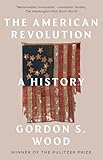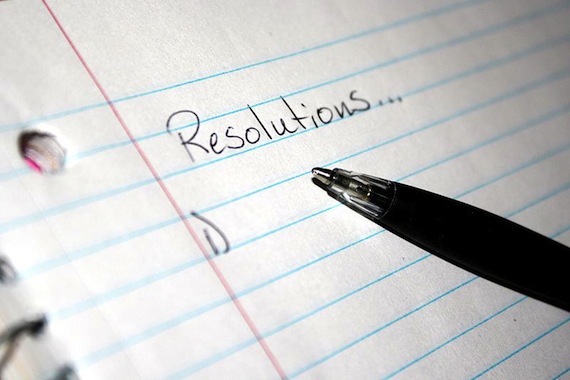
Every new year, my husband and I quit drinking for the month. Sober January is a healthy and smug time, filled with sparkling water and peppermint tea and discussions about what kind of red wine would have gone well with the lamb shanks. This year, we’ve also given up sugar for the month. We joke that we should also take away bread, dairy, meat, salt. Anything with flavor, anything that makes us happy. Next year we will consume only paper towels soaked in water for 31 days.
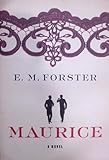
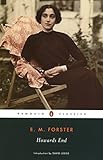 A more pleasurable new year’s resolution is one that adds to your life rather than subtracts from it. One year, for instance, I vowed to wear more dresses. I did, and it was a fabulous (and feminine) year. Reading resolutions, if they aren’t too onerous, also fall under this category. For example, vowing to read a poem a week isn’t a huge challenge and, wow, how it can render a Saturday morning more ponderous and magical! A couple of years back I devoted a summer to E.M. Forster, and, aside from the splendor of reading Howards End and Maurice, I loved saying, in my best mid-Atlantic, Gore Vidal-inspired accent, “I find myself on a Forster kick lately.”
A more pleasurable new year’s resolution is one that adds to your life rather than subtracts from it. One year, for instance, I vowed to wear more dresses. I did, and it was a fabulous (and feminine) year. Reading resolutions, if they aren’t too onerous, also fall under this category. For example, vowing to read a poem a week isn’t a huge challenge and, wow, how it can render a Saturday morning more ponderous and magical! A couple of years back I devoted a summer to E.M. Forster, and, aside from the splendor of reading Howards End and Maurice, I loved saying, in my best mid-Atlantic, Gore Vidal-inspired accent, “I find myself on a Forster kick lately.”

 This year, I resolve to read James Baldwin’s nonfiction, in particular The Fire Next Time. The desire to read Baldwin emerged from discussions, both in-person and online, about Between the World and Me by Ta-Nehisi Coates, which I own but haven’t yet read. Beyond the obvious similarities between the two books (the letter writing device and race in America as subject matter), I’m interested in other ways these two texts interact, and where and how they diverge.
This year, I resolve to read James Baldwin’s nonfiction, in particular The Fire Next Time. The desire to read Baldwin emerged from discussions, both in-person and online, about Between the World and Me by Ta-Nehisi Coates, which I own but haven’t yet read. Beyond the obvious similarities between the two books (the letter writing device and race in America as subject matter), I’m interested in other ways these two texts interact, and where and how they diverge.
 I also resolve to read David Copperfield. I’d already planned to read it this year after spending 2015 with one contemporary novel or another, and then I read Meaghan O’Connell’s Year in Reading, wherein she not only recommended many of the same books I had read and loved in 2015, but also mentioned that she was waiting for the Charles Dickens to arrive in the mail. This seemed fated. We have agreed to tackle the book together, in a kind of two-lady book club, this February.
I also resolve to read David Copperfield. I’d already planned to read it this year after spending 2015 with one contemporary novel or another, and then I read Meaghan O’Connell’s Year in Reading, wherein she not only recommended many of the same books I had read and loved in 2015, but also mentioned that she was waiting for the Charles Dickens to arrive in the mail. This seemed fated. We have agreed to tackle the book together, in a kind of two-lady book club, this February.
In figuring out my own reading resolutions, I realized how much fun it is to hear about what others plan to read this year. In this spirit, I asked some people I admire to share their 2016 bookish resolutions.
The Essayist
 David Ulin, former critic for the Los Angeles Times and the author of Sidewalking: Coming to Terms with Los Angeles, always writes about books with such perspicacity and grace. He told me he generally doesn’t believe in resolutions since he almost never follows through with them. He went on:
David Ulin, former critic for the Los Angeles Times and the author of Sidewalking: Coming to Terms with Los Angeles, always writes about books with such perspicacity and grace. He told me he generally doesn’t believe in resolutions since he almost never follows through with them. He went on:
But when it comes to reading in 2016, my main goal is to relax. To step back from the treadmill, and to read in a more integrated way. In part, this will mean as a critic, since I plan to continue writing about books; in part, as a writer, reading books that connect to, or address, various projects; and (perhaps most importantly) in part, as a reader, reading for no agenda other than my own. I’ve long believed that reading as a writer (and certainly as a critic) condemns one never to read for pure pleasure again. What I mean is that we are reading, inevitably, from within our own processes, with an eye toward how the sausage is made. I don’t imagine that will change for me, but I want to read recklessly this year, to put books down in the middle, to start and stop and start again. I want to read old books, new books, books by friends and books by strangers, books from all across the globe. Next to my bed, where I am writing at this moment, there are two piles of books, each about a foot and a half high. I’d like to read down those stacks, which include memoir, poetry, short story collections, detective fiction, books I wasn’t able to get to until now. Will I be able to read all of them, or even most of them, this year? Unlikely. And yet, they perch there like a promise or a dare.
The Poet
 My friend Tess Taylor, who is the poetry critic for NPR’s All Things Considered, and who will publish her second collection Work & Days this April, also plans to follow her bookish desires, wherever they may take her:
My friend Tess Taylor, who is the poetry critic for NPR’s All Things Considered, and who will publish her second collection Work & Days this April, also plans to follow her bookish desires, wherever they may take her:
My biggest goals in 2016 are to read deeply, to read works as a whole, and to read off the grid. I think in the whole buzzy Facebook news-cycle thing, we get caught in a book-of-the-moment phenomenon. That is totally fine for the engine of selling books but maybe not as great for the part of us that makes us hungry to write them. Wearing my book reviewer hat, I am often reading for deadline or for money. I’m glad I get the to write things, truly, but this can be far from the wayward, unplugged feeling that made me a bookworm as a kid. So this year I want to get lost more. It can be very sustaining to engage one artist deeply, for pleasure, to get the measure of the craft and the life. Right now I’m reading all of Ted Hughes. I admit that this started out of a journalistic assignment, but the poems and the letters and the mind caught my attention and suddenly I’ve been ploughing through them almost obsessively. It’s a big private enterprise, and I mostly do it late at night or first thing in the morning. For now it’s not for sale. It feels really dreamy, like it feeds the writer in me. I want to do more of that.
The Debut Novelist

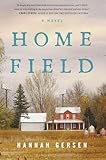 Would this desire to “get lost more,” as Tess puts it, extend to someone just stepping into the publication game? The year I published my first novel, I bought and read so many other recently released first novels because I was curious about what my colleagues were writing, and because I wanted to feel like I was in solidarity with my fellow debut novelists. (Class of 2014 in the house!) I asked fellow staff writer Hannah Gersen if the impending publication of her first novel, Home Field (out in July, y’all!), was affecting her reading resolutions. Yes, she said, but in a different way. She told me she’s planning to read Marcel Proust’s In Search of Lost Time:
Would this desire to “get lost more,” as Tess puts it, extend to someone just stepping into the publication game? The year I published my first novel, I bought and read so many other recently released first novels because I was curious about what my colleagues were writing, and because I wanted to feel like I was in solidarity with my fellow debut novelists. (Class of 2014 in the house!) I asked fellow staff writer Hannah Gersen if the impending publication of her first novel, Home Field (out in July, y’all!), was affecting her reading resolutions. Yes, she said, but in a different way. She told me she’s planning to read Marcel Proust’s In Search of Lost Time:
Or maybe it’s better to say I’m planning to finally read the whole thing from start to finish without skipping sections. I’m not sure how much this impulse is related to being a debut novelist, but Proust is definitely comfort reading for me because I’ve read and reread certain passages at different points in my life. The idea of reading the entire novel, knitting together all those favorite scenes, a little each day, feels very grounding. Maybe I also need a break from thinking about contemporary literature, to have a kind of cork-lined reading experience.
The Book Editor
I envy Hannah’s plan and the break she will get from the now-now-now! of our contemporary book-making machine (even as she gets to be a part of it.) It also made me wonder about those working within the industry. Do you make reading resolutions if you read and edit manuscripts for a living? Turns out, you do — or at least Laura Tisdel, executive editor at Viking, does. Every year, she told me, she attempts such a resolution.
Three years ago I read nonfiction titles to bone up on an area of reading, and general knowledge, I was woefully uneducated about (I tackled mostly history stuff, including Operation Jedburgh by Colin Beavan and The American Revolution by Gordon Wood). Two years ago, I focused on classics I hadn’t read as a student (Middlemarch and Giovanni’s Room? Check and check!). Last year, I had a baby (*crickets*). As a relatively new mother, one with just enough sleep to begin regaining some self-awareness, I’ve found myself missing the conversations I used to have with my friends catching up over a beer or even just disappearing down the rabbit hole of a text message thread. So this year, I’m going to read books that my friends recommend to me. I know darn well I don’t have the time in my schedule or the capacity to be a book club participant, but I’m going to make a sort of book club of one: I’m going to ask the people I care about and respect to recommend a book they loved, and then I’m going to read that book and write to them about it. I’m starting the year with Shine On, Bright and Dangerous Object by Laurie Colwin, which a dear friend recommended to me just before the holidays when we grabbed a long overdue coffee date together. I’m thinking of this project as a way to commune with my friends, and to discover stories and writers that might never have surfaced in my nightstand pile otherwise.
(I now have strong motivation to start texting recommendations to her!)
The Bookseller
I get the sense that Tisdel, like the others I asked, wants to step back from the machine. Not with a beloved classic, like Gersen, and not by reading “recklessly” as Ulin suggests, or associatively, like Taylor. But by reading a particular book for, and with, and because of, a particular person. It’s reading, and talking about reading, as intimacy.
Mary Williams, the general manager of Skylight Books in Los Angeles, is another integral member of the book-making machine, and her resolution echoes those of the others:
Free books are one of the perks of being a bookseller. But they are also a curse; there are just so many of them. I have never been able to keep up with all the books coming out each season that I want to read. Cue desperate feelings of inadequacy. Also, the world is full of great books that came out before I became a bookseller and my professional obligation to stay current began. So my resolution is to forgive myself for the new books I can’t get to (wish me luck), and to make some time for the aging heroes lodged in the middles of stacks of unread books in my apartment. Already Dead by Denis Johnson. Stoner by John Williams. More short stories: especially Lorrie Moore and George Saunders and Lydia Davis. Basically, more reading without deadlines.
Reigning Authoress
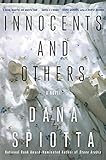 While Mary is tossing off the shackles of professional obligation to read Stoner in the break room (Oh, how I envy her! I’d love to read that for the first time all over again!), Dana Spiotta’s next book, Innocent and Others, will be released. It comes out in March, which is motivation for me to finish that stupid Dickens as fast as I can — and for Mary to put those shackles back on. While every smart person is reading her novel, what books will Spiotta herself turn to? She told me, “When I was in my teens, I loved to read any kind of novel about growing up. he Bildungsroman(s), the sentimental educations, the coming-of-age/loss-of-innocence stories. It was the job at hand, and I needed help.” She continued:
While Mary is tossing off the shackles of professional obligation to read Stoner in the break room (Oh, how I envy her! I’d love to read that for the first time all over again!), Dana Spiotta’s next book, Innocent and Others, will be released. It comes out in March, which is motivation for me to finish that stupid Dickens as fast as I can — and for Mary to put those shackles back on. While every smart person is reading her novel, what books will Spiotta herself turn to? She told me, “When I was in my teens, I loved to read any kind of novel about growing up. he Bildungsroman(s), the sentimental educations, the coming-of-age/loss-of-innocence stories. It was the job at hand, and I needed help.” She continued:
This year, since I am reaching the milestone of what is optimistically referred to as “middle age,” I want to return to those books that I read so long ago. From The Red and the Black and Jane Eyre to Manchild in the Promised Land and The Basketball Diaries. And many more books that I remember loving. Will I still love them? They are the same of course, but maybe it will be a measure of how much I have changed. What I now think is engaging and moving and beautiful. What I think is funny. What I think is true (with all my experience as a person and a reader). Or maybe not, maybe my connection to these books of my youth will be exactly the same. I wonder if my young self will be in those pages, waiting for me.
Spiotta, too, is stepping away from the publishing hoopla. She will re-read; she will look backward as a way, perhaps, to look forward.
I’m sure that all of us will succumb to diving into the latest hot new book, because it’s fun to join those conversations, and because who doesn’t want to experience what promises to amaze and rearrange us? But I hope we also fulfill our personal reading goals, too, even if it’s to not have a goal: to read for pleasure, for comfort, for connection, for knowledge about the world and ourselves.
What’s your reading resolution for 2016?
Image Credit: Wikimedia Commons.
